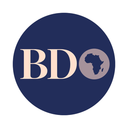
Don't have WebCatalog Desktop installed? Download WebCatalog Desktop.
Desktop App for Mac, Windows (PC)
Use The Economist in a dedicated, distraction-free window with WebCatalog Desktop for macOS and Windows. Improve your productivity with faster app switching and smoother multitasking. Easily manage and switch between multiple accounts without using multiple browsers.
Run apps in distraction-free windows with many enhancements.
Manage and switch between multiple accounts and apps easily without switching browsers.
The Economist app provides users with comprehensive access to global news, analysis, and insights into business, economics, politics, and culture. It offers a wide range of content, including daily updates, in-depth articles, podcasts, and newsletters. Users can access the full content of The Economist magazine digitally, along with exclusive digital events and an extensive archive of past issues.
Key features of the app include unlimited digital access to all reporting, podcasts, and events, as well as access to the Espresso app, which provides a daily briefing on global news. Subscribers can also participate in live digital events, offering in-depth discussions with specialist correspondents and experts. The app is designed to provide users with a rich understanding of global developments, making it a valuable resource for those interested in staying informed about current events and trends.
The app supports various subscription options, including digital-only and digital plus print subscriptions, catering to different user preferences. It also offers special discounts for students and other groups, making it accessible to a broader audience. Overall, the app serves as a comprehensive platform for anyone seeking detailed analysis and news coverage from a global perspective.
Website: economist.com
Disclaimer: WebCatalog is not affiliated, associated, authorized, endorsed by or in any way officially connected to The Economist. All product names, logos, and brands are property of their respective owners.

The Guardian

Financial Times

Trading Economics

The Economic Times

Forbes

Business Insider

Investor's Business Daily

Bloomberg Businessweek

The Spectator

Hindu Business Line

Econlib

El Economista

inkl

The Critic

WirtschaftsWoche

Private Eye Magazine

Jornal Económico

Crikey

Business Daily

财经网

E24

News Statesman

EconomyNext

De Tijd
Solutions
© 2026 WebCatalog, Inc.